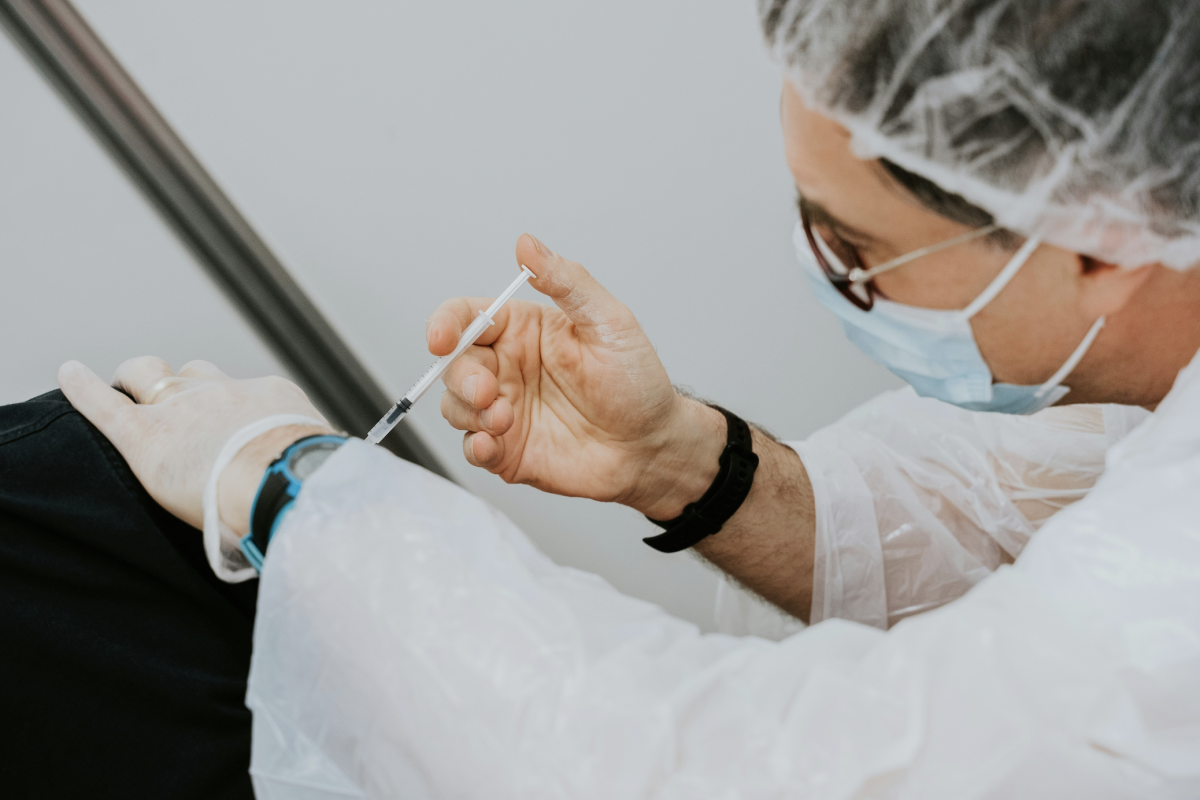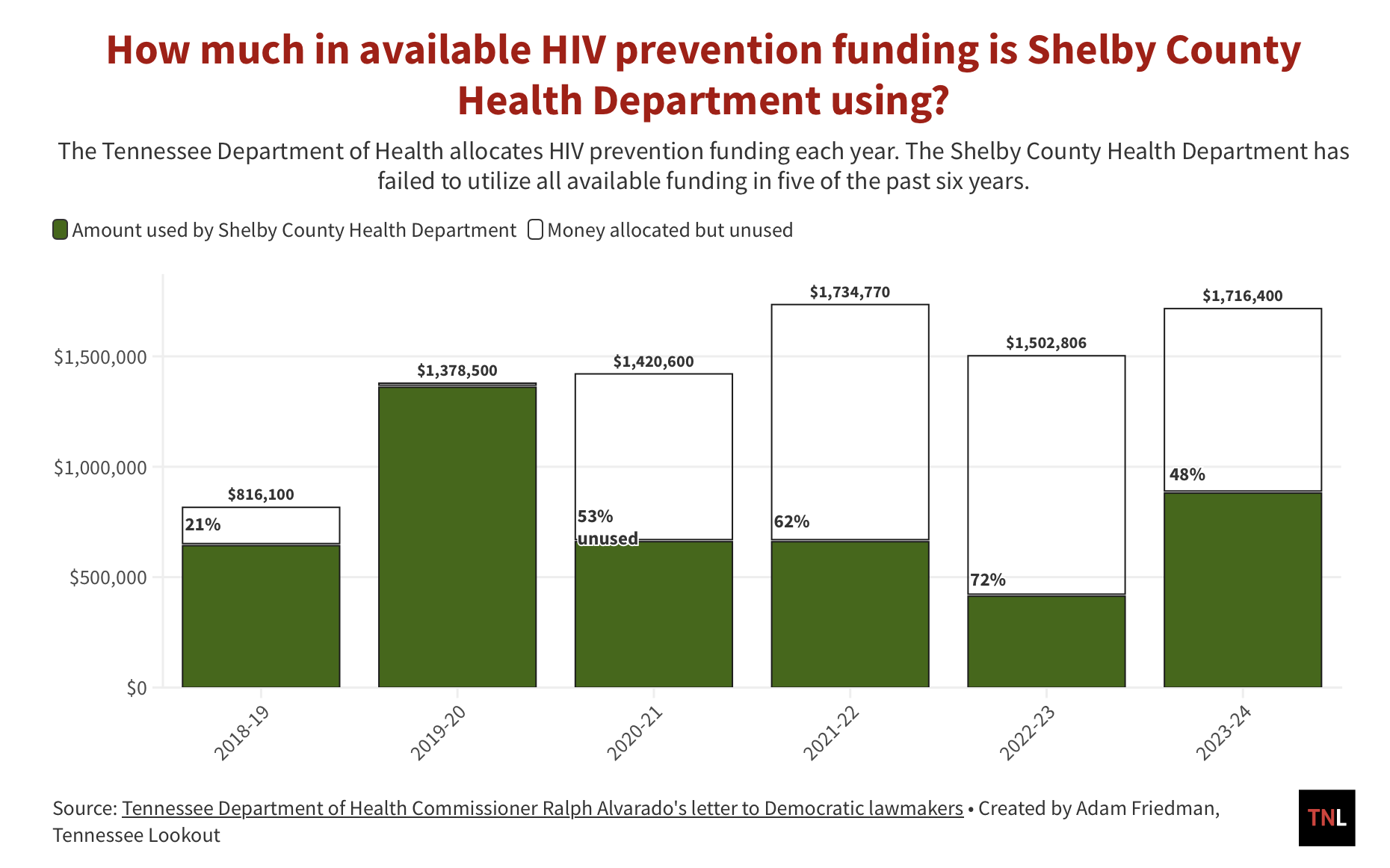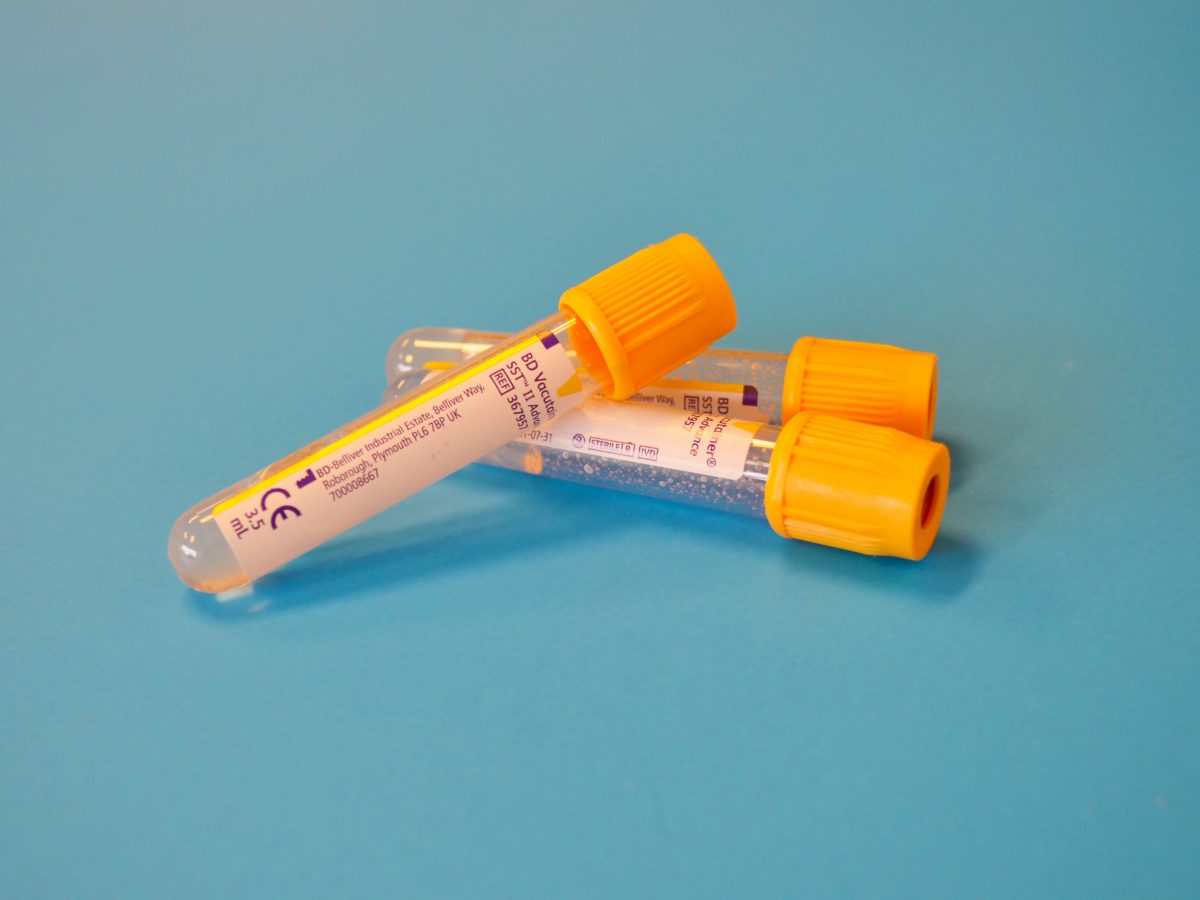A new partnership will allow Memphis Shelby County Schools (MSCS) to provide students and families with testing for HIV and sexually transmitted infections (STI), counseling, treatment, education, and more.
The Shelby County Health Department (SCHD) announced the partnership with MSCS last week. The health department said it wants to provide more resources for younger people who have been diagnosed with HIV and to be proactive in preventing the disease.
Shelby County has historically had one of the highest new infection rates for HIV in the nation. In May of 2024 The SCHD noted an “alarming increase in newly diagnosed cases of HIV in our community.” Officials said the highest increase affected people aged 14 to 45, and was not “spread evenly throughout the county.”
The spread of HIV among teens rose 50 percent from 2022-2023
“Preliminary data from the Tennessee Department of Health indicates the infection rate for people aged 15 to 19 in Shelby County increased by about 50 percent from 2022 to 2023,” the health department said in a statement. “Rates of new HIV cases among young people aged 15 to 24 years old in Shelby County are more than five times higher than the same age group in the United States overall.”
Shelby County Health Department director and health officer Dr. Michelle Taylor said that the impact of HIV and STIs on young people is “significant” and is further complicated by stigma and “a lack of access to healthcare resources.”
“Rates of new HIV cases among young people aged 15 to 24 years old in Shelby County are more than five times higher than the same age group in the United States overall.”
Shelby County Health Department
Prior to this announcement the health department, United Way of Greater Nashville, and John Snow, Inc.(JSI) hosted the first Shelby County HIV summit in October at the FedEx Institute of Technology at the University of Memphis. The summit not only facilitated conversations on how to coordinate efforts about HIV awareness and prevention, but how to address rising rates in Shelby County, which Taylor said represents a renewed sense of commitment to teamwork.
Taylor said, during these conversations, people realized that the health department had not been in MSCS, the largest school district in the state, since before the pandemic.
“It was a renewed sense of urgency to say, ‘Hey, why aren’t we in the schools?’” Taylor said. “Or, if we’re in the schools, ‘Why is it limited?’”
As a result of these conversations, Taylor and her team provided a memorandum of understanding to increase the health department’s presence at schools.
“Memphis Shelby County Schools services 106,000 students and a lot of those students are adolescents, people we know we need to educate with comprehensive sex education and teach them how to best protect their health in every way,” Taylor said. “We’re super excited.”
According to Taylor, education plays a large role in diminishing stigma and engaging young people. She said this still stands as a barrier to addressing HIV.
“Here in the traditional South, in what we know as ‘The Bible Belt,’ a lot of times stigma can get in the way,” Taylor said. “Stigma and stigmatizing people who are living with HIV gets us nowhere. Especially when we know even if you’re living with HIV you can live a long, fruitful life.”
Taylor said that HIV prevention and treatment have come a long way, resulting in more care for those living with the disease, which can aid in conversations that seek to address stigma.
“This valuable partnership with MSCS will help us provide our young people with the information, screenings, and preventive care they need to protect themselves. I am grateful to the Shelby County Board of Education and Memphis-Shelby County Schools leadership for putting the health of students and families first in making this beneficial collaboration possible,” Taylor said.






